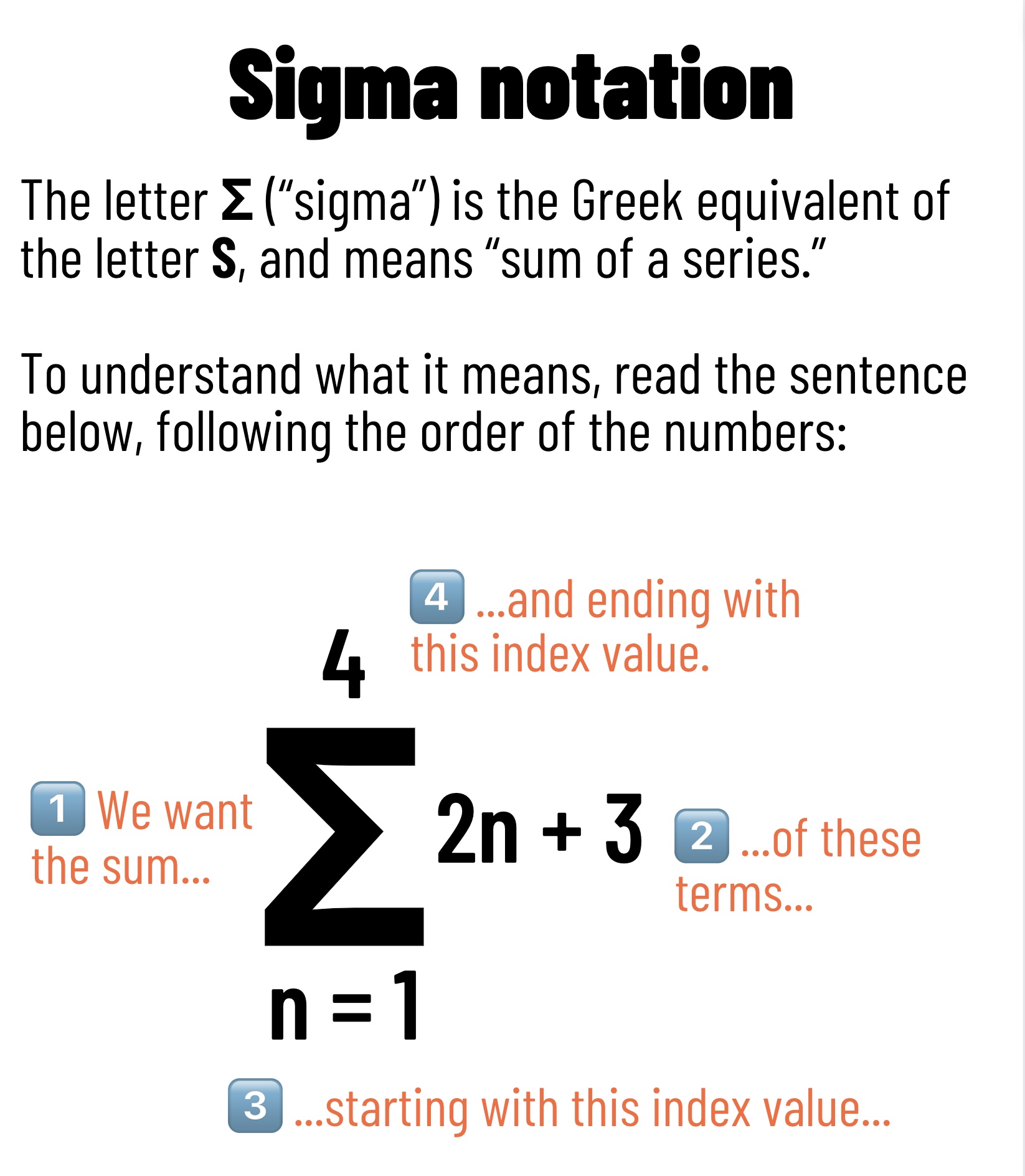Where Did Sigma Originate: Unpacking Its Many Meanings
Have you ever stopped to think about a word and wondered where it truly began? It's like, a word can have so many different lives, you know? The term "sigma" is a pretty good example of this, really. It pops up in all sorts of places, from math class to internet chatter, and even in business strategies. So, it's natural to feel a bit curious about its journey, isn't it?
Today, we're going to explore the fascinating story of "sigma." It's a word that, as a matter of fact, has multiple distinct origins and uses, each one shaping how we understand it in different situations. We'll trace its path from ancient alphabets to modern-day slang, giving you a clearer picture of this surprisingly versatile term.
By the end of this, you'll have a much better grip on the diverse history behind "sigma," helping you sort out its various meanings. It's almost like peeling back layers to see what's underneath, wouldn't you say? Let's get into it.
- Sone 385 Hikaru Nagi The Enigmatic Journey Of An Icon.linkmaz
- Hd4hub Hindi Dubbed Movie Your Ultimate Guide To Entertainment.linkmaz
- Aditi Mistry Live App Video.linkmaz
- Teach Me First For Free.linkmaz
- Hdhub4ucom.linkmaz
Table of Contents
- The Ancient Roots: The Greek Letter
- Sigma in the Digital Age: The "Sigma Male"
- The Business World: Six Sigma and Lean Six Sigma
- Sigma in Gaming: A Hero Emerges
- Frequently Asked Questions About Sigma
The Ancient Roots: The Greek Letter
When we talk about where the word "sigma" truly got its start, you know, we have to go way, way back. The concept of sigma, in a way, has its deepest roots in ancient Greece. Here, it was used to represent a very distinct letter in their alphabet. This letter, Σίγμα, is the eighteenth letter of the Greek alphabet, and it plays a pretty big role in their written language, actually.
It's quite interesting, because this Greek letter, sigma (Σ, σ, ς), is where the term "sigma male" even gets its name. Some scholars, you see, have a thought that sigma might be derived from the Phoenician letter tsade (צ). This older letter represented a specific sound, the voiceless alveolar fricative, which is a bit of a mouthful, but it shows how sounds and symbols travel through time and different cultures, doesn't it?
So, at its very core, "sigma" is, in fact, a symbol from a very old writing system. It’s a foundational piece of language that has been around for centuries, carrying with it a history of communication and knowledge. This origin, really, is the oldest and most formal use of the word, grounding it in academic and historical contexts, kind of like a sturdy old tree, you know?
- Masa 49 Com.linkmaz
- Prank Goes Wrong Pantsumania.linkmaz
- 5movierulz 2025 Your Ultimate Guide To Downloading Telugu Movies.linkmaz
- Scarlett Johansson Porn.linkmaz
- Emuyumi Couple The Ultimate Guide To Their Love Story Journey And Influence.linkmaz
Sigma in the Digital Age: The "Sigma Male"
Fast forward many, many years, and the word "sigma" takes on a whole new life, especially online. You've probably seen people on TikTok or Twitter/X use the word "sigma," and it's not always totally clear what they mean, is that right? Well, "sigma male" (or just "sigma") is a word in internet slang that has become really popular in online communities, you see.
So, what exactly is a "sigma male" in this modern context? Basically, a sigma is someone who operates independently. They tend to prefer their own company rather than always being in a big crowd of friends. It's like, they walk their own path, and that's just fine with them, you know? The term, in a way, describes masculine men who choose a path outside traditional social structures, often seen as self-reliant and not needing external validation.
The slang word "sigma" also, in some circles, means "the best" or someone who is a humble alpha male. This idea of a "humble alpha" is a bit unique, because it suggests someone who is strong and capable, but without needing to show it off or dominate others. It's a quiet strength, if you will. The term's rise in popularity, particularly among Gen Z and Gen Alpha, shows how quickly language can change and adapt in the digital space, doesn't it? Learn more about sigma on our site.
The question of "where did the sigma personality come from" in this internet sense is a fascinating one. It's tied to online discussions about social hierarchies and individual identity, where people are looking for ways to describe different types of personalities that might not fit neatly into older categories. It's a term that resonates with folks who value self-sufficiency and a bit of a lone wolf attitude, which is a powerful idea for many, you know?
The Business World: Six Sigma and Lean Six Sigma
Moving away from ancient letters and internet slang, "sigma" also has a very significant place in the world of business and quality improvement. This is where we encounter "Six Sigma," a method that has evolved quite a bit over time. The concepts behind Six Sigma, as a matter of fact, can be traced through centuries, as the method took shape into what it is today, which is pretty cool, isn't it?
Lean Six Sigma's predecessor, Six Sigma, actually originated from the Motorola company in the United States. This happened in 1986, which, you know, wasn't that long ago in the grand scheme of things. Six Sigma was developed within Motorola to help them compete, particularly with methods like Kaizen, or what's known as Lean. It was all about improving processes and reducing defects, making things work better and more efficiently, basically.
Over the last few years, "Lean Six Sigma" has come to mean a number of things to different organizations. But, in reality, most organizations use it as a tried and tested approach. It's a way to implement continuous improvement, always looking for ways to make things a little better, a little smoother. It's about finding the ideal solution to streamline business operations today, you see, helping businesses manage their finances with ease.
For businesses, Quickbooks online, for instance, is designed to help you manage your business finances with ease. It helps small businesses track expenses, manage cash flow, send custom invoices, and create financial reports. This kind of system, you know, makes any place your place of business. Working online with cloud accounting software means your business data is always safe, accessible, and synced across all your devices, which is very helpful, isn't it?
Quickbooks small business accounting software helps your small business track expenses, manage cash flow, send custom invoices, and create financial reports. It’s about getting the right plan for your business at the best possible price. You can try it free for 30 days to see why Quickbooks is the number one online accounting software. It really helps to organize and manage your business with a top-rated solution, allowing you to find the ideal solution to streamline your business operations today. You can even explore features or make a seamless switch from Quickbooks Desktop to Online, which is pretty convenient, right?
This focus on efficiency and managing operations, you know, ties back to the core idea of Six Sigma. It’s about minimizing errors and maximizing quality, which is something that every business strives for, isn't it? The idea is to achieve nearly perfect results, which, in a way, is a very ambitious goal. You can continue using Quickbooks to manage your books, signing up for a free trial to join millions of businesses already using it. Customer login for your Quickbooks Online, Quickbooks Self Employed, or Quickbooks Online Accountant account is right there, too.
Sigma in Gaming: A Hero Emerges
Now, let's switch gears a bit and look at another, more recent origin for the term "sigma" – in the world of video games! If you're into gaming, particularly Overwatch, you might already know about this one. Sigma is a tank hero in Overwatch, and he was released on August 13, 2019. He became the 31st hero added to the game, which was a pretty big deal for players, you know?
Sigma, in the game, is an eccentric astrophysicist and a volatile tank. Throughout his origin story within the game, we are given multiple clues as to why this is the truth about him. There's the obvious symbolism where his three separate personas collide, which makes for a very interesting character, doesn't it? His unique abilities and backstory really make him stand out in the game, adding another layer to the diverse uses of the word "sigma."
This particular origin, you see, is purely fictional, created for a specific entertainment product. It shows how a word can be adopted and given a completely new meaning within a creative context. It’s a testament to how language, even a single word like "sigma," can be incredibly versatile and pop up in the most unexpected places, which is pretty cool, really. It’s just another example of how "sigma" has found its way into different parts of our lives, from ancient texts to digital entertainment, and even into business solutions like Quickbooks online accounting software that helps you manage your cash flow, track expenses, send invoices, and more, all in one place. You can try it free for 30 days, too.
Frequently Asked Questions About Sigma
What exactly is a "sigma male" and where did that idea come from?
A "sigma male" is a term that's become popular in internet slang, particularly among younger generations. It describes a masculine man who prefers to operate independently, often choosing their own company over being part of a large social group. The idea, you know, gained traction online as a way to describe someone who is a "lone wolf" or a "humble alpha male," not needing to fit into traditional social hierarchies. It basically emerged from online communities discussing personality types and social dynamics, you see.
How did the business method "Six Sigma" get its start?
Six Sigma, a method focused on improving quality and efficiency, actually originated at Motorola in the United States back in 1986. It was developed to help the company compete more effectively, particularly against methods like Kaizen. Its goal, in a way, was to reduce defects and improve processes to near perfection, making operations much smoother. It's a structured approach to continuous improvement that many businesses use today to streamline their operations, you know. To learn more about sigma male traits, you might want to check out some of our other pages.
Is "sigma" just a new internet word, or does it have older roots?
While "sigma" has certainly gained a lot of attention recently as an internet slang term, especially with the "sigma male" concept, its roots are much, much older. The word "sigma" originally comes from the Greek alphabet, where it is the eighteenth letter (Σ, σ, ς). This ancient Greek letter is the foundational origin of the term, connecting it to centuries of history and academic use before it ever became a popular term online, you see. It's a word with a very long and varied journey, basically.
- Kirsten Too Sweet Onlyfans Leak A Comprehensive Analysis.linkmaz
- Hdhub4u Netflix Series Your Ultimate Guide To Streaming Entertainment.linkmaz
- Is David Muir Lgbtq.linkmaz
- Why Did Chester Bennington Die.linkmaz
- Subhashree Sahu Viral Mms.linkmaz

What Does the Term Sigma Male Mean? • 7ESL

The History of Six Sigma: From Motorola to Global Adoption

Math Archives : Global Nerdy